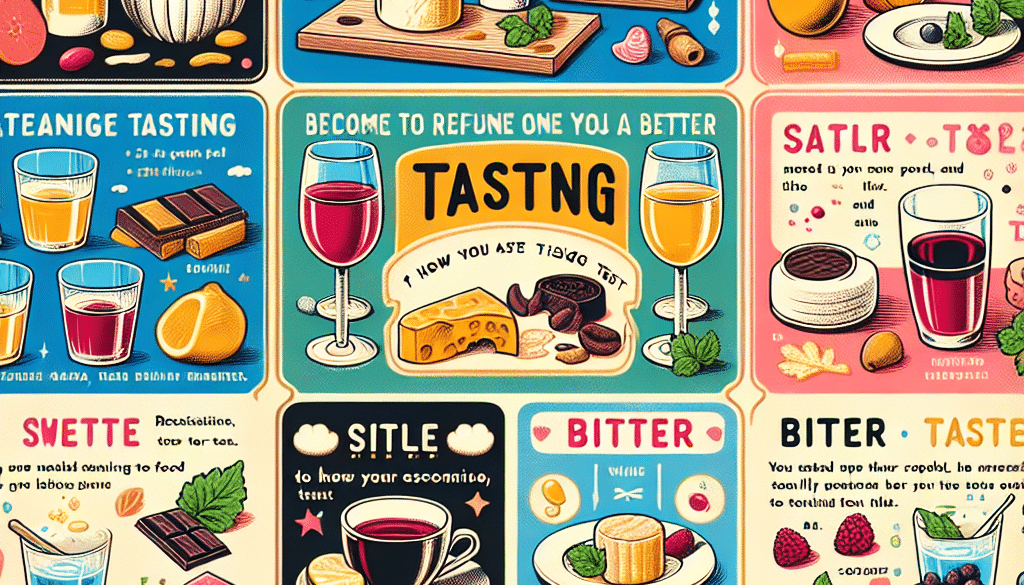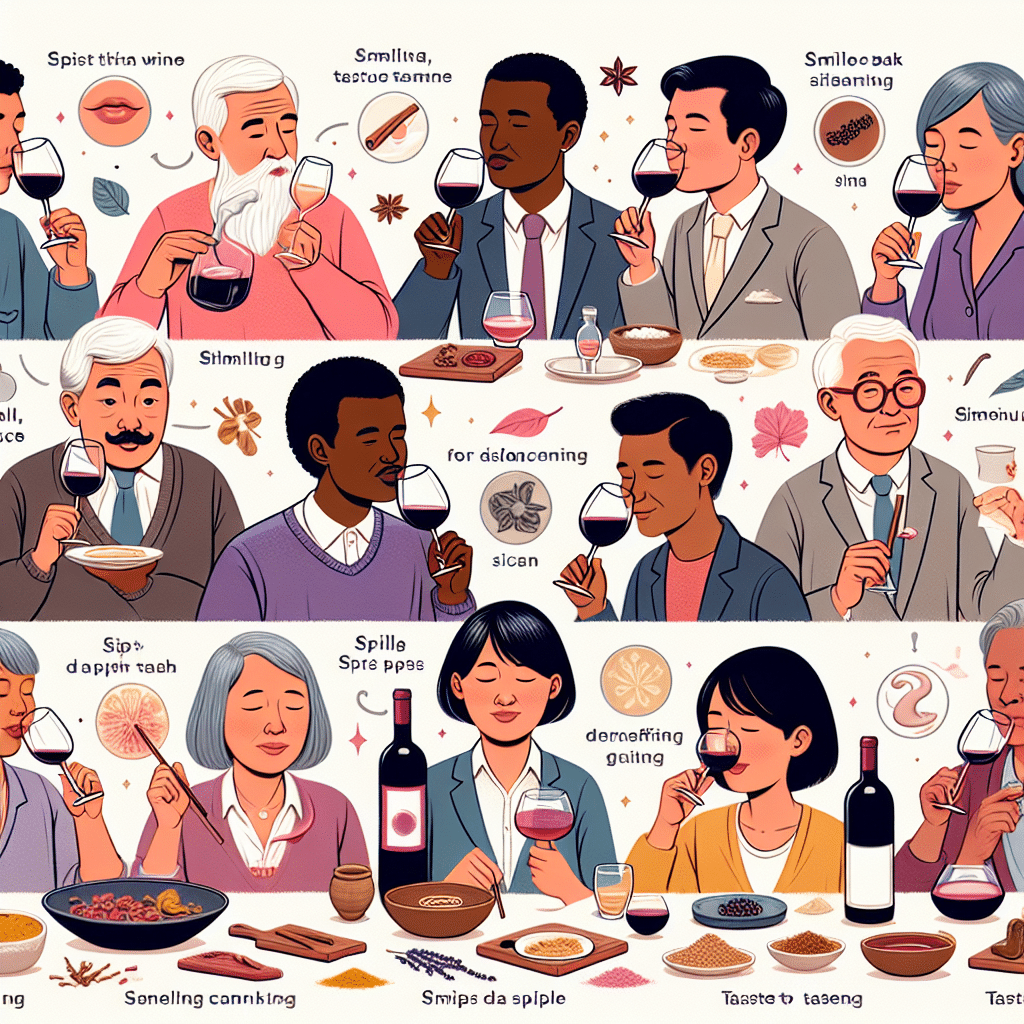Tasting Basics: Become a Better Taster in Food & Beverage
-
Table of Contents
- Become a Better Taster: Mastering the Art of Food & Beverage Tasting
- Understanding the Tasting Process
- Training Your Palate
- Exploring Different Food & Beverage Categories
- Enhancing Your Tasting Vocabulary
- Participating in Tastings and Workshops
- Conclusion: Tying It All Together
- Discover ETChem’s Protein Products
Become a Better Taster: Mastering the Art of Food & Beverage Tasting
Developing a refined palate is not just for sommeliers and food critics. Whether you’re a culinary enthusiast, a home cook, or simply someone who enjoys eating and drinking, understanding the basics of tasting can greatly enhance your sensory experiences. This article will guide you through the essentials of becoming a better taster in the world of food and beverages, providing practical tips and insights to elevate your tasting skills.
Understanding the Tasting Process
Tasting is a complex process that involves multiple senses. It’s not just about the tongue; it’s about how the combination of taste, smell, sight, touch, and even hearing contribute to the perception of flavor. Here’s a breakdown of the sensory elements involved in tasting:
- Taste: The tongue detects five basic tastes – sweet, salty, sour, bitter, and umami (savory).
- Smell: Aroma plays a crucial role in how we perceive flavor. The olfactory receptors in the nose pick up volatile compounds that the brain interprets as different smells.
- Sight: Visual cues can set expectations about a food or drink’s flavor and quality. Color, texture, and presentation can influence our overall tasting experience.
- Touch: The mouthfeel of a product, such as its texture, temperature, and carbonation, affects our perception of taste.
- Hearing: The sound of food, like the crunch of a crisp apple or the sizzle of a steak, can also impact our enjoyment.
Training Your Palate
To become a better taster, you need to train your palate. This involves paying close attention to the flavors and textures you experience while eating or drinking. Here are some steps to help you refine your tasting abilities:
- Slow Down: Take your time to savor each bite or sip. Rushing through a meal or drink will not give you the opportunity to fully appreciate the flavors.
- Be Mindful: Engage all your senses. Look at the color and shape, smell the aroma, feel the texture, and listen to the sounds before tasting.
- Identify Flavors: Try to pinpoint specific flavors and where they hit on your tongue. Is it sweet, salty, sour, bitter, or umami?
- Compare and Contrast: Taste different varieties of the same food or drink side by side to understand the nuances between them.
- Keep a Tasting Journal: Record your impressions of different foods and beverages to track your progress and remember your experiences.
Exploring Different Food & Beverage Categories
Each category of food and beverage has its own set of characteristics to look for when tasting. Here are some examples:
- Wine: Observe the color, swirl to release aromas, sniff, and then taste. Note the acidity, tannins, sweetness, body, and finish.
- Coffee: Assess the aroma, acidity, sweetness, body, and aftertaste. Pay attention to the balance and complexity of flavors.
- Chocolate: Look at the glossiness, snap the piece to hear the quality, smell it, let it melt on your tongue, and identify the flavor notes.
- Cheese: Examine the texture, smell the cheese, and then taste it. Consider the creaminess, sharpness, and any additional flavors like nuttiness or fruitiness.
Enhancing Your Tasting Vocabulary
Having a rich vocabulary can help you describe and communicate your tasting experiences more effectively. Learn terms commonly used in the industry, such as “earthy,” “oaky,” “full-bodied,” or “crisp.” Don’t be afraid to use metaphors or comparisons to familiar tastes to convey your thoughts.
Participating in Tastings and Workshops
Joining organized tastings or workshops can be an excellent way to improve your tasting skills. These events are often led by experts who can provide guidance and answer questions. They also offer the chance to taste a variety of products in a structured environment.
Conclusion: Tying It All Together
Becoming a better taster is about engaging your senses, practicing regularly, and expanding your knowledge. By understanding the tasting process, training your palate, exploring different categories, enhancing your vocabulary, and participating in tastings, you can develop a more discerning taste and a deeper appreciation for the complexities of food and beverages.
Discover ETChem’s Protein Products
If you’re interested in exploring the world of proteins, ETChem’s range of collagen products is an excellent place to start. Their high-quality collagens are perfect for those looking to delve into the nutritional aspects of tasting, offering a neutral taste and instant solubility that can complement any food or beverage experience.
About ETChem:
ETChem, a reputable Chinese Collagen factory manufacturer and supplier, is renowned for producing, stocking, exporting, and delivering the highest quality collagens. They include marine collagen, fish collagen, bovine collagen, chicken collagen, type I collagen, type II collagen and type III collagen etc. Their offerings, characterized by a neutral taste, instant solubility attributes, cater to a diverse range of industries. They serve nutraceutical, pharmaceutical, cosmeceutical, veterinary, as well as food and beverage finished product distributors, traders, and manufacturers across Europe, USA, Canada, Australia, Thailand, Japan, Korea, Brazil, and Chile, among others.
ETChem specialization includes exporting and delivering tailor-made collagen powder and finished collagen nutritional supplements. Their extensive product range covers sectors like Food and Beverage, Sports Nutrition, Weight Management, Dietary Supplements, Health and Wellness Products, ensuring comprehensive solutions to meet all your protein needs.
As a trusted company by leading global food and beverage brands and Fortune 500 companies, ETChem reinforces China’s reputation in the global arena. For more information or to sample their products, please contact them and email karen(at)et-chem.com today.





